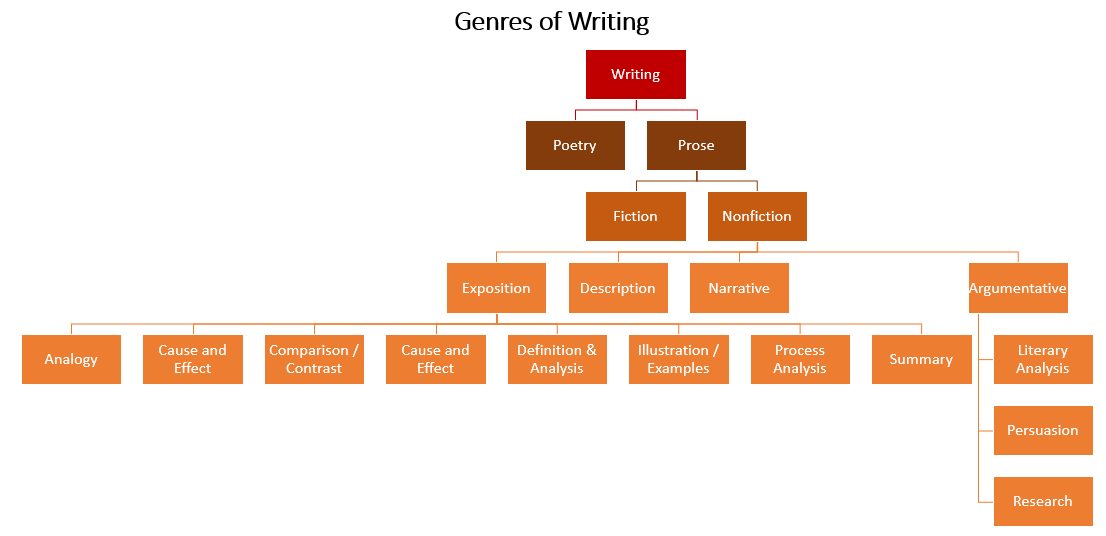You may already be familiar with the word genre when talking about types of fiction. Think of the types of movies you can see on Netflix: comedy, drama, mystery, fantasy/science fiction, and so forth.
However, fiction is not the only type of creative work that has genres. Nonfiction writing has genres, as well. These genres are the ones most commonly used in college assignments, and will be the focus of this course.
Understanding genre is essential for being able to respond in the right way to writing assignments you get in college.
Frequently, essays are classified into four types: exposition, description, narrative, and argumentation (EDNA). Each of these types can be divided further.
In this week, we will discuss expository and descriptive essays. Argumentative essays (also known as research essays) will discussed in Weeks 5-7. Narrative essays will be discussed in Week 6.
The diagram below illustrates the relationship between various genres of writing:

Expository Essays
In an expository essay, the writer selects a topic (central idea) on which to focus, researches the topic and evaluates evidence, develops the idea with relevant supporting details, and makes an argument concerning the topic.
This can be done in various ways: comparison and contrast, definition, example, the analysis of cause and effect, among others.
Most short-form college writing assignments are expository essays. Argumentative essays are similar to expository essays, but develop the thesis (central argument) in more detail, based on more thorough research. This will be discussed further in the section "Genres of Writing: Research Paper", also in this week.
Descriptive Essays
Descriptive essays tell what something is like. They are written from the writer's own viewpoint, and use vivid language to show what he or she is feeling and experiencing.
They differ, however, from narrative essays, since they are not structured in the form of a story.
For example, writing an essay about your favorite food in which you talked about Ethiopian food would be a descriptive essay; however, writing about your first visit to an Ethiopian restaurant would be a narrative essay.
Descriptive essays are not as frequently assigned in college, so you will not be asked to write one in this course.
For Further Reference:
Expository Writing, by Richard Nordquist (About.com)
Kane, T. S. (1994). The new Oxford guide to writing. New York, etc.: Oxford University Press.
Part III. The Expository Paragraph: pp. 68-108
